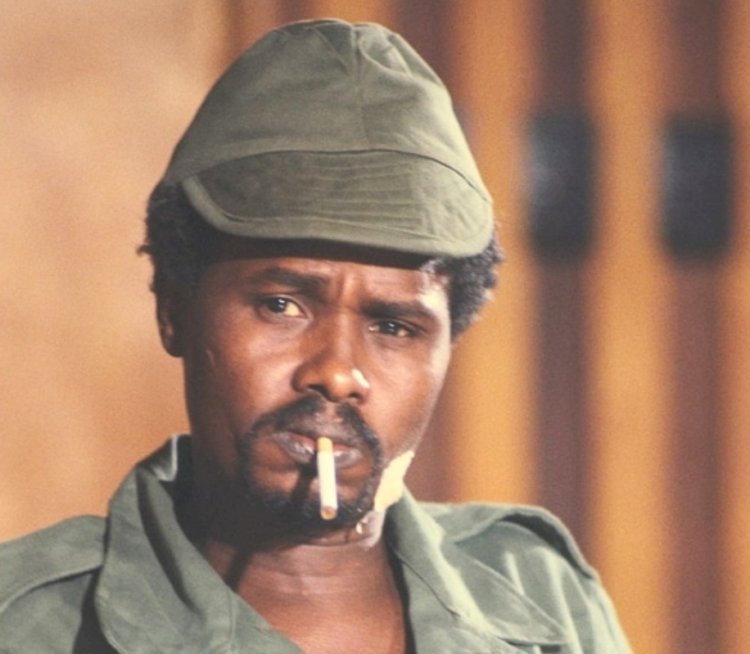Hissène Habré, Chad's Former President

Hissene Habre seized power in Chad by force in 1982 and quickly became the architect of a terrible repression in the central African nation. He died in the Senegal on where he had been serving a life imprisonment sentence for crimes against humanity after an unprecedented trial.
The Senegalese media reported that Habre had died from Covid-19. "Desert fighter", "man of the maquis", "warlord"; the qualifiers abound to describe his military qualities particlularly during his heyday. His career in the 1970s and 1980s was part of the troubled history of independent Chad, of which he was the third president.
 Habre inspects some of his soldiers in 1980
Habre inspects some of his soldiers in 1980
Born in 1942 in Faya-Largeau (north), he grew up in the Djourab desert, among nomadic shepherds. Intelligent, he was noticed by his teachers. After becoming a sub-prefect, he left to study in France in 1963 at the Institut des hautes etudes d'Outre-mer. He then studied law in Paris, attended the Institute of Political Studies and received his political education by devouring Frantz Fanon, Ernesto "Che" Guevara and Raymond Aron.

Returning to Chad in 1971, he joined the Chad National Liberation Front (Frolinat), of which he became the leader, before founding with another northerner, Goukouni Weddeye, the Council of the Armed Forces of the North (Fan). In 1974, he made a name for himself abroad by holding the French ethnologist Francoise Claustre hostage for three years, forcing France to negotiate with the rebels.

He was then Prime Minister of President Felix Malloum, with whom he broke off, and then Minister of Defense of Goukouni Weddeye, President of the Government of National Unity created in 1979.

Ally of the West against Gaddafi
A staunch nationalist and fiercely opposed to the Libyan leader of the time, Muammar Gaddafi, who had Weddeye's sympathies, he broke with his former ally shortly afterwards, triggering a civil war in N'Djamena, which he had to evacuate in late 1980.
From eastern Chad, where he had gone back into hiding, he fought Goukouni Weddeye, supported by Tripoli, and returned to N'Djamena victoriously in 1982. His regime, supported against Gaddafi by France and the United States, lasted eight years.
This period was marked by terrible repression: opponents - real or supposed - were arrested by the Documentation and Security Directorate (DDS, political police), tortured and often executed. A commission of inquiry estimated that more than 40,000 people died in detention or were executed during his reign, including 4,000 who were identified by name.

In December 1990, Habre left N'Djamena in a hurry, fleeing the rebel blitzkrieg of Idriss Deby Itno, one of his generals who had defected 18 months earlier and invaded the country from Sudan. President Deby, killed in April 2021 by rebels from Libya, would rule Chad with an iron fist for 30 years.
Driven out of power, Habre found refuge in Dakar for an exile that would be peaceful for more than twenty years. In Senegal, he traded in his fatigues and khaki cap for a large boubou and a white cap. A practicing Muslim, he is appreciated by his neighbors, with whom he prays during religious holidays, and is as discreet as he is generous, participating in the construction of mosques or financing the soccer club...


In 2011, when the Senegalese president Abdoulaye Wade, under pressure, creates the surprise by wanting to expel him, residents of the neighborhood of Ouakam show their support for Mr. Habre, pointing out that he has a Senegalese wife and children. He was finally arrested on June 30, 2013, in Dakar and then charged by a special court created under an agreement between the African Union and Senegal.

His trial, the first in the world in which a former head of state is brought before a court in another country for alleged human rights violations, opened on July 20, 2015. On May 30, 2016, he was sentenced to life in prison for war crimes, crimes against humanity, torture and rape.


